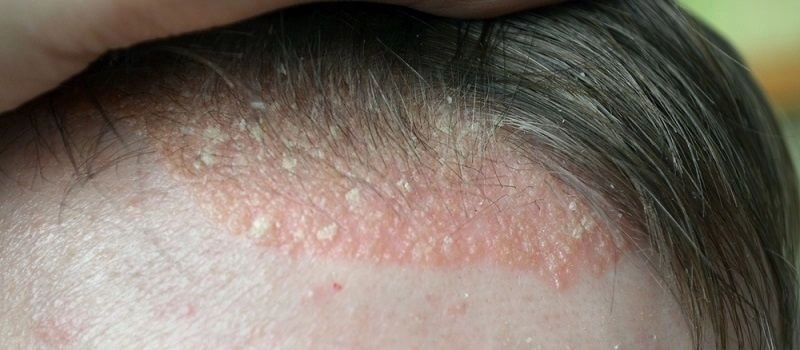
Scalp psoriasis is caused by the improper function of a person’s immune system, and more specifically it is when that person’s immune system produces excessive amounts of white blood cells called T cells and neutrophils. Lifestyle factors and genetics can also contribute to scalp psoriasis. That’s the basics in regard to what causes scalp psoriasis, but we will get into that in greater detail here with this post. Nearly everyone gets dandruff from time to time, but for most people a good medicated dandruff shampoo is all that’s needed to get rid of ‘flakes’.
If you’ve got scalp psoriasis, however, the solution likely isn’t going to be so simple. Your dandruff and itchy, flaking skin is going to be much more persistent and you’ll want to know what causes scalp psoriasis in order to know how to best treat it. There’s also the possibility that you might think you simply have the most treatment-resistant dandruff ever, when in fact you have scalp psoriasis. So information on how to know if you have scalp psoriasis may be helpful too.
We’ll get into all of that here, as well as the best methods related to how to treat scalp psoriasis. This can be important, as hair loss is a common side effect of scalp psoriasis.
Here’s what’s known for what causes scalp psoriasis outside of the primary overarching cause we highlighted in our intro here – that it’s caused by an overreactive immune system. These are factors that contribute to your likelihood of having scalp psoriasis:
Family history – genetics can play a role here. If either of your parents have scalp psoriasis then it’s more likely you’ll have the condition too.
Obesity – Carrying excess weight (as can be determined by using a BMI body mass index calculator) can be a part of what causes scalp psoriasis. Another part of this factor is that excess body weight creates more creases and folds in the skin where inverse psoriasis rashes are able to form.
Smoking – Plain and simple, if you smoke you have an increased risk of scalp psoriasis and especially so if you already have the genetic ‘trigger’ for it. Plus, if you already have it and you smoke then your symptoms will often become worse.
Stress – It’s hard to avoid stress in the modern day lives most of us live, but stress is definitely a part of what causes scalp psoriasis. This is because excess stress impairs the function of the immune system and as we’ve stated here it’s immune system function that is the primary factor in what causes scalp psoriasis.
Viral and Bacterial Infections – This is the last factor on the list here, and it’s been well established that recurring bacterial or viral infections increases a person’s risk for scalp psoriasis. This is especially true for young children and people with HIV (AIDS).
Other possible contributors to what causes scalp psoriasis are insufficient Vitamin D levels, excessive alcohol consumption, skin infections or injuries, and medication use (lithium, beta-blockers, antimalarial drugs, and iodides)
Scalp psoriasis is different from dermatitis. While self-diagnosis of any condition is not recommended and best only done by a physician, there are some standard signs of scalp psoriasis that may be helpful in informing you. Symptoms of scalp psoriasis include silvery-red scales that are seen extending beyond the hairline and along with them is itching, flaking, and redness.
Again though, this is not something you determine on your own and you should make an appointment to see you doctor if you believe you may be developing scalp psoriasis.
A physician will usually put a person some type of prescription medication if they are dealing with this condition, and one of the most common of them is Taclonex (Betamethasone / Calcipotriene). It supplements Vitamin D to the body to counter the effects of psoriasis of the scalp. Tazorac (Tazarotene) is another good choice, as is Methoblastin (Methotrexate). Your physician will be able to advise you on which medicated cream for scalp psoriasis is best for you.
Another approach to treating scalp psoriasis is UV light therapy. Ultraviolet B light is effective in treating all types of psoriasis, including scalp psoriasis. There are also home remedies you can look into, including using apple cider vinegar on affected areas or an oatmeal bath to reduce itchiness, inflammation, and flaking.
In addition to what causes scalp psoriasis it’s good to know what you can do to reduce the severity of it. Plus keep in mind that there are many significantly worse and more troubling skin conditions that can affect you.